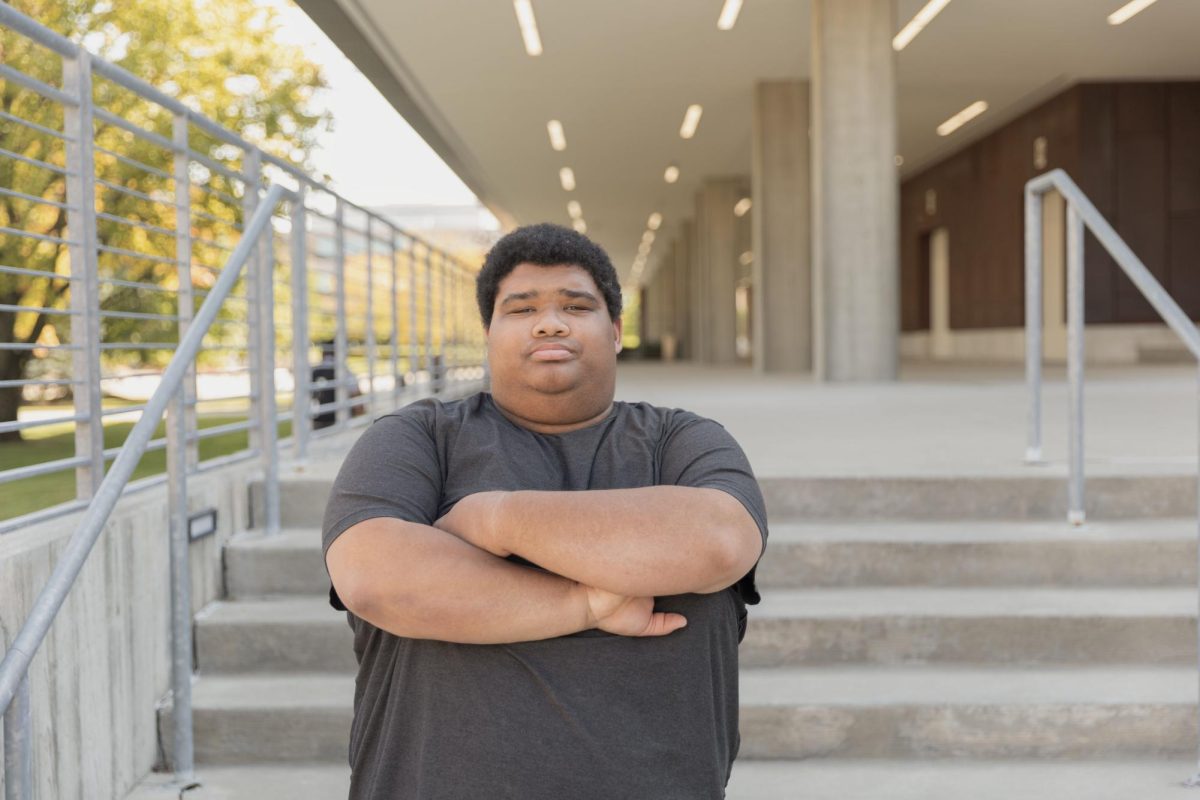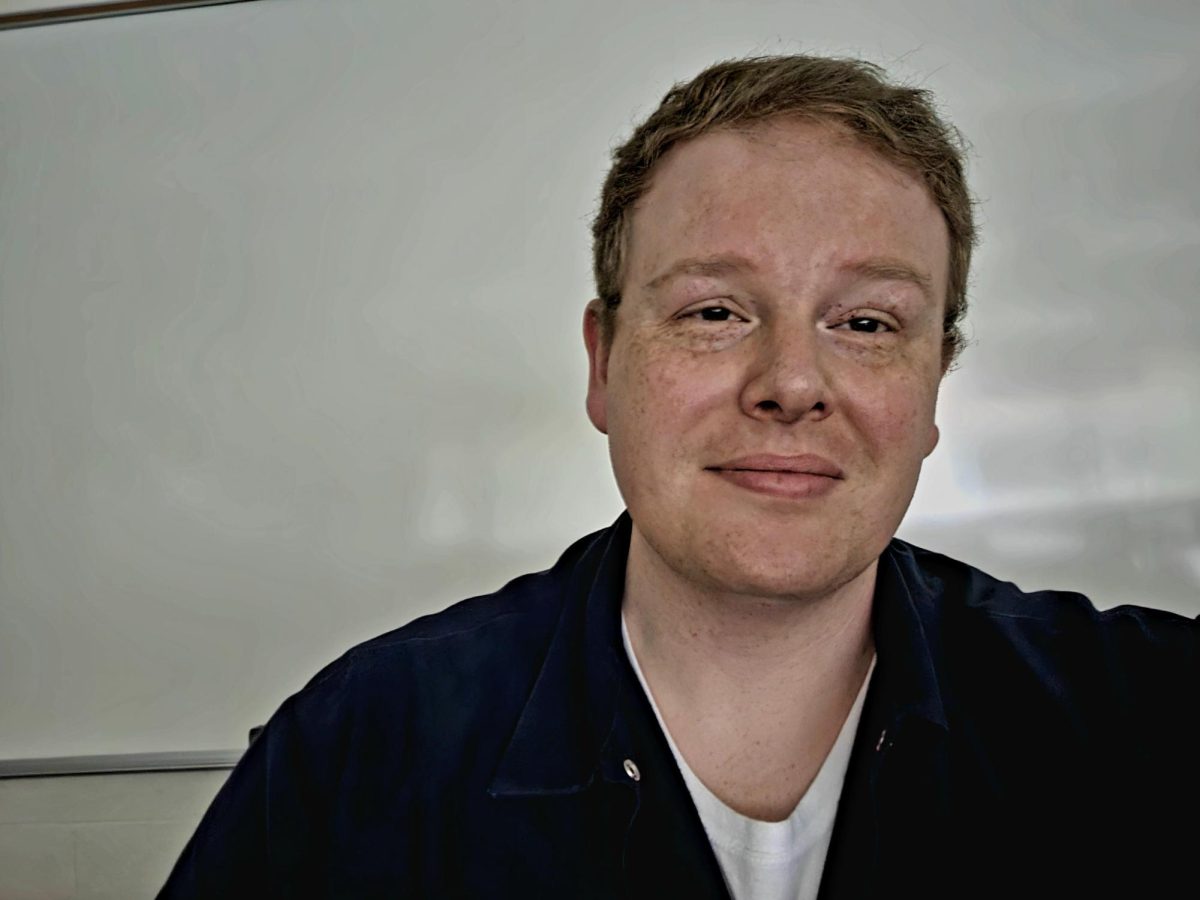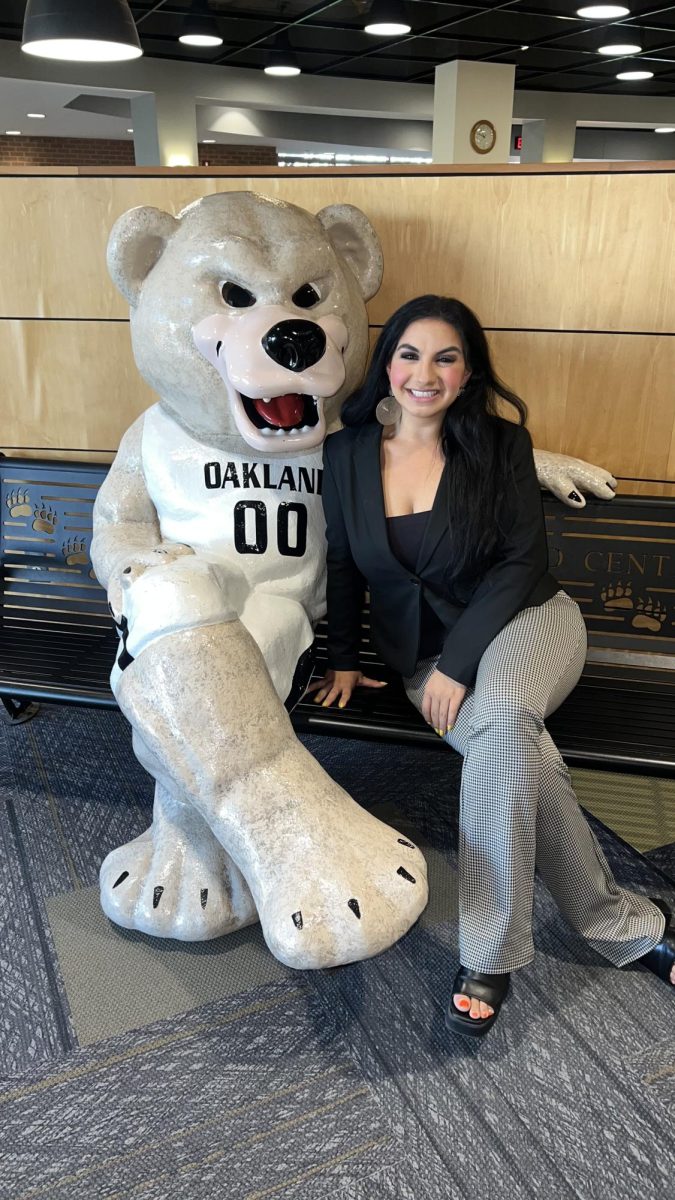Processing the scene of anti-democratic ex-governor, Snyder, being applauded by a mostly white, male, suited up audience at Oakland University’s inaugural event of the Dennis Muchmore Public Policy Series on civility provided me with some insight as to the people we are choosing to be/become. With some of those directly harmed by his legacy in the room itself, Snyder’s first address to the crowd asked “why would you call someone names that you want to work with you?” I felt my stomach turning at the thought (and I’m the least affected of his victims). For Snyder to equate his discomfort with “people being mean” (the 10 or so people holding signs in the room in protest of his presence) with the macro level harm he has caused is quite misinformed to say the least.
A teach-in was organized in response to the panel in order to uplift the voices of those impacted, and educate and empower the OU community regarding Snyder’s legacy of harm and lack of justice surrounding it. Former Michigan Governor (2011-2019) Snyder, who had been indicted of crimes related to the lead poisoning of the people of Flint, continues to dodge any accountability; and the organizing of this event hosting him further separates him from it. He has been accused of using anti-democratic emergency manager laws to effectively undo the voting power of people in majority-Black cities like Pontiac, Detroit and Benton Harbor, selling off public goods like fire departments, garbage removal, youth recreation centers, and in one case even the city hall’s decorative Santa display. Snyder and his administration’s messaging were quite clear – “the people of this city didn’t choose their leaders right; I know how to serve their communities better.” Except activists, parents, youth, and concerned community members, some of whom were at the teach-in and protest, have been speaking out against this lie since its inception and thanks to them—we know better. The complete removal of the facts related to Snyder’s anti-democratic, racist legacy which has resulted in extreme, present day health, economic, and other social justice disparities, feels right in line with the whole vibe of the event: “we can handle making decisions that harm people, but we can’t handle hearing anything back about it.” It’s a delusion that is harmful to buy into and as justice-seeking people, I encourage us to choose to be people that resist it.
I’m reminded of something Kermit Williams, one of the speakers at the teach-in, said – “They will step on your neck and ask you to be nice about it.” I’m wondering—Is this the type of humans we want to be? People who knowingly step on others’ necks and then tell them to stop screaming about it? Do we want to be bystanders who add salt to the wound, asserting: “The guy stepping on your neck has also done some good things, too, so won’t you stop making noise about it so we can talk about something more ‘civil’? Any living being, humans included, would yell to get someone off their neck. And in solidarity and love, any human, at least the human I want to actively choose to be, would scream for someone suffocating too… I’m concerned by the expectation for us not to do so. To me it indicates a disconnection to our humanness in that we prioritize this toxic dynamic of silence and politeness in the face of extreme harm against oneself or our community. From the information they so boldly shared at the teach-in, we know that Snyder’s victims’ necks are still being stepped on; that the economic impacts devastating their communities from the selling of public goods is currently felt; that people are still actively experiencing health effects from lead poisoning, and that voters in Pontiac still have distrust in the electoral system since their vote was made mute by emergency manager laws. The endorsement of a conversation that lies about such suffering tells people that removing the foot from these communities’ necks, pursuing justice, was not a priority for OU at the moment, that instead, they wanted to have a “civil conversation”. In the world freedom fighters across the world are working for, when harm is done, those harmed guide us towards repair. In this current reality, and the one OU chose to perpetuate, those harmed are silenced and told to “be nice” about the injustices their communities are experiencing. It’s infuriating, wrong, and nothing that I want to be a part of. I hope all reading this feel compelled to resist this sickening dynamic too.
Our group, which included OU students, protested and organized to ask OU to, if nothing more, include those impacted by Snyder’s policies on the panel; they chose not to. Organizers of the panel closed registration early although there was plenty of space in the room and allowed just a small bit of those protesting to come into the venue, leaving out valuable voices, experiences, and perspectives from the “public discourse.” OU admin was invited to the teach-in to learn about the community’s concerns with providing Snyder a platform, but I’m unsure if any came. They were given multiple opportunities to understand what we were proclaiming in protest. Yet during the panel discussion, the only mention of the protest was by the moderator indicating that “some people were trying to shut down this debate which is quite antithetical to our progress”. As there was no effort by protesters to silence the panelists, this was an offensively dismissive statement to the work and voices involved in the protest and those harmed by Snyder’s policies. It is clear to me with multiple opportunities to be brought in, that OU in fact didn’t want to understand; that they already chose their priorities; ones that valued prestige and comfort over human life and justice. OU shut out an important part of the public from this event which was a choice that communicated to Flint, Pontiac, and Detroit residents that they weren’t welcome here (unless they would be nice about the foot on their neck). Questions can be raised about the sort of person who would attend an event that seemed more geared to further harm than to understand it.
To the organizers and supporters of this panel- Did you know there were Flint residents whose family members had died from lead complications in the audience? Consider the “civility” of your actions towards them as they watched Snyder be applauded. Did you know that at the teach-in, an OU student spoke about Snyder’s policies’ direct harms on her community and family in Detroit? Does your student’s story fit your narrative of civility? Or how do you feel knowing that your literal neighbors in Pontiac, and Snyder’s victims too, were there to see the event organized and endorsed by many that day? Think about your young neighbors in Pontiac who are still living without the recreation centers that were sold during the Snyder era. It is very clear to me how ironically uncivil the choice to host him was and I hope those who organized, promoted, and endorsed through their attendance think about the ways that your actions (and inactions) furthered harm, about what you chose to prioritize, and about the person you may or may not want to be. What type of people do we want to be? The choice at OU’s was loud and clear in the scene described earlier-someone who ignores a neighbor’s very real suffering in the name of “civility” and who choses prestigiousness over accountability and justice. And who in that moment, failed to value the voices of your principal stakeholders: your students.
Rather than promoting civility and public discourse as OU claimed to do, you have silenced those harmed, disempowered your student body, and chose to protect the continuation of the structures that promoted so much suffering during the Snyder era. Your claimed values to “advance diversity, equity, and inclusion in an environment of mutual trust and respect at all levels of the institution and facilitate opportunities and success for all community members” is nothing but flowery language when not acted upon in critical moments like this one. I’m proud of those of us who showed up that day to be justice seekers. We made clear the type of people we want to be – people that value human life, see our neighbors’ pain, and work together to act upon it. It is such people who will move us towards a world where civility is actually possible; one where everyone’s voice is valued, we are able and choose to care for each other, and justice is prioritized.








